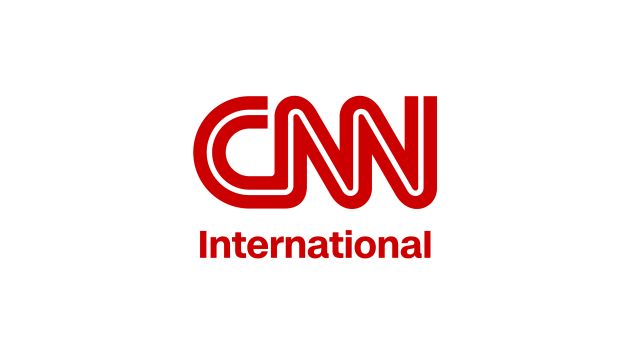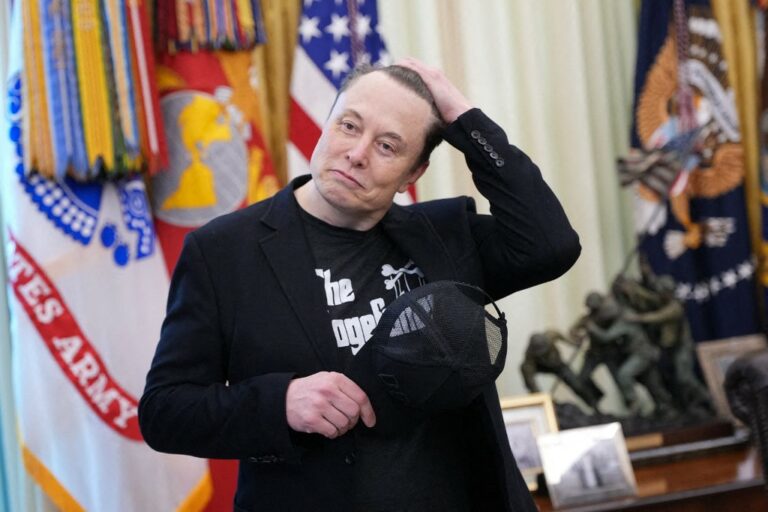Headline
CNN To Layoff 200 Staff Amid Attempts To Modernise Business

US news network CNN will shed six percent of staff, some 200 people, the outlet said Thursday as it embarks on a major shakeup of staffing and programing amid a deluge of political news.
The broadcaster, which said overall employee headcount could remain stable with new roles created, follows other outlets restructuring amid the return of Donald Trump to the White House on Monday.
“Some of today’s announcements mean significant new job opportunities at CNN, but others will lead to the loss of some valued colleagues,” CNN chief executive Mark Thompson told staff in a memo.
“Yes, there are job-losses — around 6 percent of the current CNN workforce will be impacted — but we don’t expect total headcount to fall much this year, if at all,” he added.
READ ALSO: CNN Reporter Protests Nigeria’s $215 Single Entry Visa Fee
“That’s because of the $70 million we’re investing in our digital plans and the many new jobs it will pay for.”
It is unclear if the restructuring will follow the pattern of some other legacy media outlets where seasoned reporters and editors on higher salaries are cleared out to make way for younger, cheaper staff for digital projects.
In November the storied Associated Press news agency said it would slash almost eight percent of jobs as the US-based wire battles client cancellations and economic headwinds.
Last July CNN announced the elimination of around 100 posts, at the same time as the creation of a paid digital offering on its website to complement existing output.
READ ALSO: MDCN Inducts 25 Graduating Medical Doctors In Bauchi
Thompson also announced on Thursday the future launch of a new paid streaming product, without giving details.
CNN previously launched a streaming service in 2022, CNN+, but it was shut down with little fanfare after a month amid a complex multi-billion-dollar merger between legacy media titans WarnerMedia and Discovery.
The channel, emblematic of declining cable TV viewership, has also suffered from stiff competition.
Long overtaken by conservative favorite Fox News, which aired an exclusive interview with Trump on Wednesday, CNN has also been overtaken by MSNBC, which has positioned itself as a vanguard of opposition and criticism to Trump and his Republicans.
Headline
Aircraft Crashes In Owerri With Four Persons Onboard

A Cessna 172 aircraft with registration number 5N-ASR, operated by Skypower Express, has crashed at the Sam Mbakwe International Cargo Airport, Owerri, Imo State.
The aircraft had departed Kaduna International Airport en route to Port Harcourt International Airport before diverting to Owerri after the crew declared an emergency.
The crash occurred at about 8:00 pm on the airport premises, with four passengers and crew members onboard.
Confirming the incident, the Director, Public Affairs and Family Assistance of the Nigerian Safety Investigation Bureau (NSIB), Mrs. Bimbo Oladeji, said the agency had been notified of the crash.
READ ALSO:Social Media Feud Spills Into Aircraft As VDM, Mr Jollof Exchange Blows
According to the NSIB, the aircraft crashed on the approach area of Runway 17, but no fatalities have been recorded so far.
The statement said: “Following the occurrence, airport emergency services were successfully activated and arrived on site promptly. Reports indicate that there was no post-crash fire, and the runway remains active for flight operations, with other aircraft taking off safely after the incident.
“Efforts are currently underway to coordinate the recovery and evacuation of the distressed aircraft from the crash site to allow for a detailed wreckage examination.”
The NSIB said it has officially activated its investigation protocols in line with its statutory mandate
READ ALSO:Ogun To Prosecute DJ Over Multiple Road Crashes
The Director-General of NSIB, Capt. Alex Badeh Jr., sympathised with the management of Skypower Express over the incident and expressed relief that no lives were lost.
Badeh Jr. added that the Bureau’s investigation team is already coordinating with relevant authorities to secure the crash site and commence a detailed investigation into the cause of the accident.
Two days ago, 11 persons narrowly escaped death as a private jet crash-landed at Mallam Aminu Kano International Airport, Kano, on Sunday morning.
The occupants, including passengers and cabin crew, were safely evacuated amid an intense atmosphere, eyewitnesses told The Guardian.
READ ALSO:Tanker Crash Kills Three, Fire Razes Shops In Kano
The private jet, owned by Flybird Aviation, crash-landed at about 9:30 a.m. while approaching Kano Airport en route to Abuja.
The incident attracted urgent attention, with emergency staff and other stakeholders converging at the runway to render rescue operations.
The management of the Federal Airports Authority of Nigeria (FAAN) is yet to release an official statement on the incident. Unofficial sources disclosed that the passengers have been taken to an unknown destination.
Several aircraft incidents have occurred at Kano Airport, with several lives lost.
The last incident occurred in May 2002, when an EAS Airline aircraft departed the runway at Aminu Kano International Airport at 1:29 p.m. local time en route to Lagos.
Headline
Musk Breaks Record As First Person Worth Over $600 Billion

Elon Musk, Chief Executive Officer of SpaceX, Tesla, and xAI, has reached a new personal wealth milestone, surpassing a net worth of $600 billion, driven primarily by a recent valuation increase of SpaceX.
The development makes Musk the first individual in history to exceed the US$600 billion threshold.
According to Bloomberg’s Billionaires Index, Musk’s net worth stood at approximately $638 billion as of 15 December 2025, with the increase largely attributed to SpaceX, which was recently valued at around $800 billion following an insider share sale.
The privately held aerospace company, based in Starbase, Texas, is now considered the most valuable private firm globally, significantly boosting Musk’s personal holdings.
READ ALSO:Elon Musk Joins ‘Cancel Netflix’ Campaign
Musk’s stake in Tesla, estimated at roughly 12 per cent, is valued at nearly $200 billion, while his majority ownership of xAI Holdings is estimated at $60 billion.
Collectively, these assets place him on track to potentially approach US$700 billion, widening the gap between him and the world’s second-richest individual, former Google CEO Larry Page, valued at $265 billion.
The SpaceX valuation comes ahead of a projected public listing in 2026, which could see the company valued at approximately $1.5 trillion.
“Other shareholder meetings are snooze-fests but ours are bangers. Look at this. This is sick,” Musk said in November during Tesla’s shareholder meeting, referring to a performance-linked pay package approved by investors.
READ ALSO:EU Fines Elon Musk’s X €120m For Violating Digital Content Rules
He added, “I super appreciate it.” The package, potentially worth up to US$1 trillion in stock, is tied to market-capitalisation and operational milestones over the next decade.
SpaceX’s Starlink satellite network has also contributed to investor confidence. The company continues to expand high-speed internet access to underserved regions worldwide.
Chad Gibbs, Vice President of Starlink Operations, stated that the satellite technology “bypasses the need to build massive amounts of infrastructure,” allowing broader and faster connectivity.
Musk’s ascent in personal wealth follows years of strategic risk-taking and long-term planning, with Tesla’s focus on electric vehicles, battery technology, and autonomous systems laying the foundation for his financial growth.
Analysts note that the combination of SpaceX’s soaring valuation, Tesla’s long-term incentives, and Musk’s diverse portfolio underpins his current status as the world’s wealthiest individual.
Headline
South Korea, Japan Protest China, Russia Aircraft Incursions

South Korea and Japan reacted furiously on Wednesday after Chinese and Russian military aircraft conducted joint patrols around the two countries, with both Seoul and Tokyo scrambling jets.
South Korea said it had protested with representatives of China and Russia, while Japan said it had conveyed its “serious concerns” over national security.
According to Tokyo, two Russian Tu-95 nuclear-capable bombers on Tuesday flew from the Sea of Japan to rendezvous with two Chinese H-6 bombers in the East China Sea, then conducted a joint flight around the country.
The incident comes as Japan is locked in a dispute with China over comments Prime Minister Sanae Takaichi made about Taiwan.
READ ALSO:China Backs Nigeria, Warns Against Foreign Interference
The bombers’ joint flights were “clearly intended as a show of force against our nation, Defence Minister Shinjiro Koizumi wrote on X Wednesday.
Top government spokesman Minoru Kihara said that Tokyo had “conveyed to both China and Russia our serious concerns over our national security through diplomatic channels”.
Seoul said Tuesday the Russian and Chinese warplanes entered its air defence zone and that a complaint had been lodged with the defence attaches of both countries in the South Korean capital.
“Our military will continue to respond actively to the activities of neighbouring countries’ aircraft within the KADIZ in compliance with international law,” said Lee Kwang-suk, director general of the International Policy Bureau at Seoul’s defence ministry, referring to the Korea Air Defence Identification Zone.
READ ALSO:Trial For South Korean Woman Accused Of ‘Suitcase Murders’ Starts Today
South Korea also said it deployed “fighter jets to take tactical measures in preparation for any contingencies” in response to the Chinese and Russian incursion into the KADIZ.
The planes were spotted before they entered the air defence identification zone, defined as a broader area in which countries police aircraft for security reasons but which does not constitute their airspace.
Japan’s defence ministry also scrambled fighter jets to intercept the warplanes.
Beijing later Tuesday confirmed it had organised drills with Russia’s military according to “annual cooperation plans”.
READ ALSO:South Korean Actress Kim Sae-ron Found Dead In Seoul Apartment
Moscow also described it as a routine exercise, saying it lasted eight hours and that some foreign fighter jets followed the Russian and Chinese aircraft.
Since 2019, China and Russia have regularly flown military aircraft into South Korea’s air defence zone without prior notice, citing joint exercises.
In November last year, Seoul scrambled jets as five Chinese and six Russian military planes flew through its air defence zone.
Similar incidents occurred in June and December 2023, and in May and November 2022.
READ ALSO:Russia Insists Ukraine Must Cede Land Or Face Continued Military Push
Meanwhile, Tokyo said Monday it had scrambled jets in response to repeated takeoff and landing exercises involving fighter jets and military helicopters from China’s Liaoning aircraft carrier as it cruised in international waters near Japan.
It also summoned Beijing’s ambassador after military aircraft from the Liaoning locked radar onto Japanese jets, the latest incident in the row ignited by Takaichi’s comments backing Taiwan.
Takaichi suggested last month that Japan would intervene militarily in any Chinese attack on the self-ruled island, which Beijing claims as its own and has not ruled out seizing by force.
AFP

 Metro4 days ago
Metro4 days agoSuspected Kidnappers Abduct 18 Passengers On Benin-Akure Road

 News4 days ago
News4 days agoI’m Not Distracted By Anti-Niger Delta Elements, Says PAP Boss, Otuaro

 News4 days ago
News4 days agoOPINION: Time For The Abachas To Rejoice

 News5 days ago
News5 days agoEdo Assembly Charges Contractor Handling Ekekhuan Road To Accelerate Work

 Sports3 days ago
Sports3 days agoJUST IN: Dembélé Named FIFA Best Men’s Player, Bonmatí Wins Women’s Award

 News3 days ago
News3 days agoWage Dispute: Court Orders PSG To Pay Mbappe €61 Million

 Metro4 days ago
Metro4 days agoNDLEA Seizes 457kg of Cannabis, Arrests Suspected Trafficker In Edo

 Headline3 days ago
Headline3 days agoAircraft Crashes In Owerri With Four Persons Onboard

 News4 days ago
News4 days agoEx-Nigerian Amb., Igali, To Deliver Keynote Address As IPF Holds Ijaw Media Conference

 Business3 days ago
Business3 days agoCBN Revokes Licences Of Aso Savings, Union Homes As NDIC Begins Deposit Payments




























